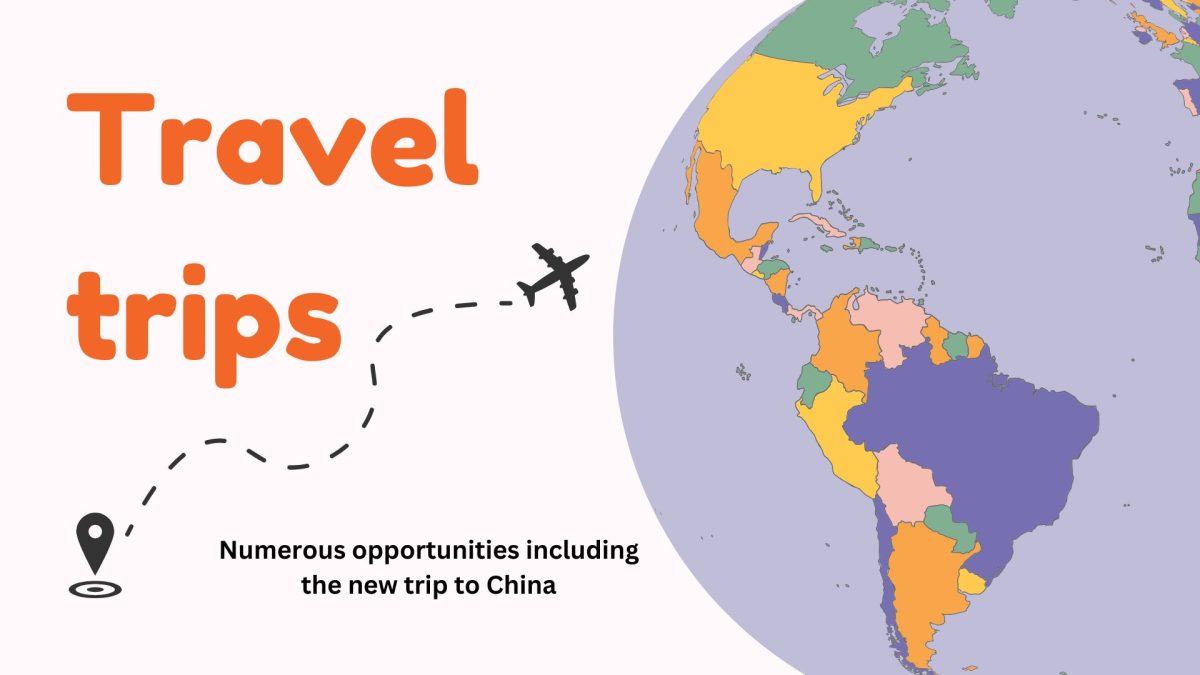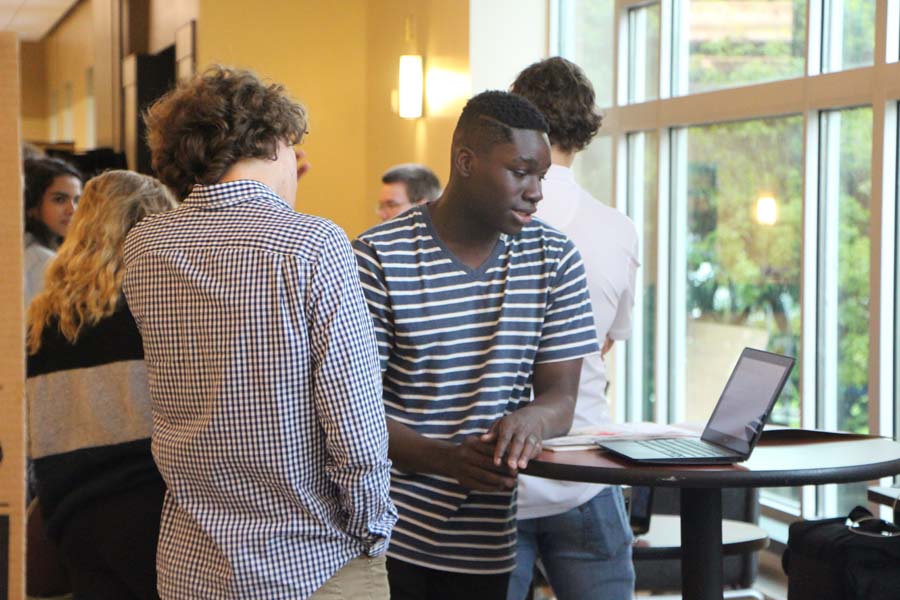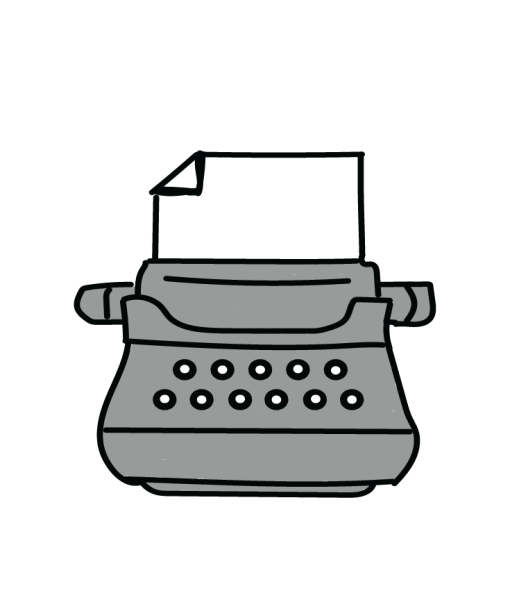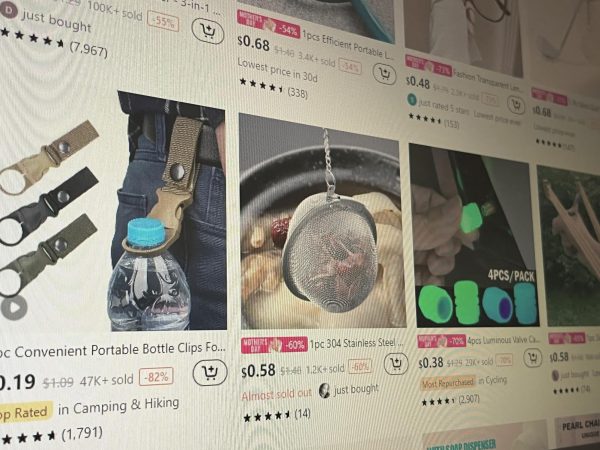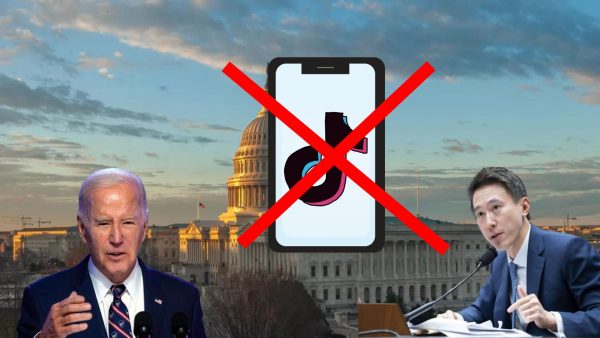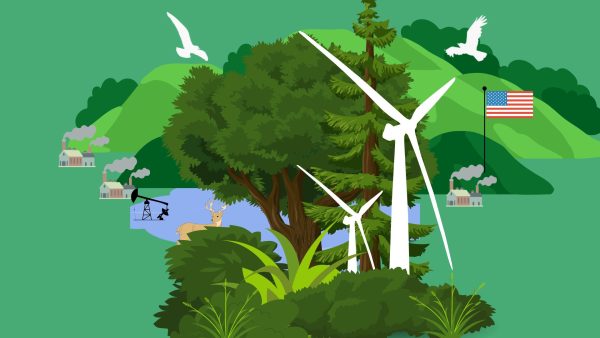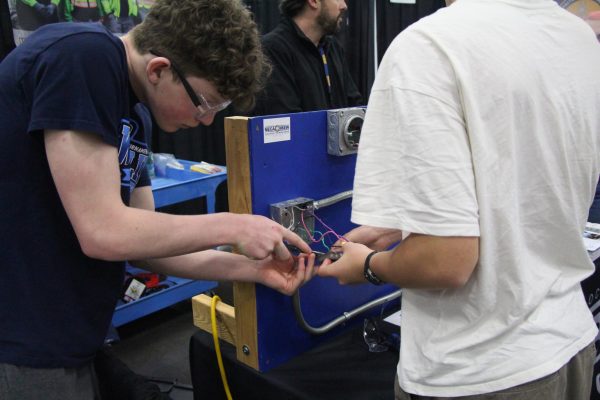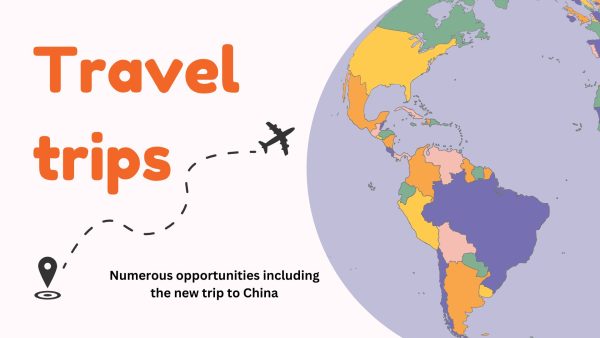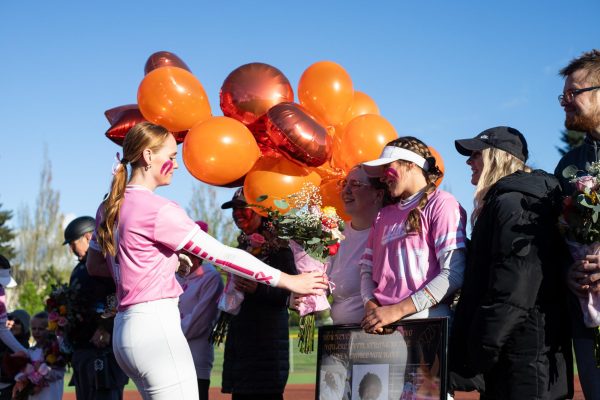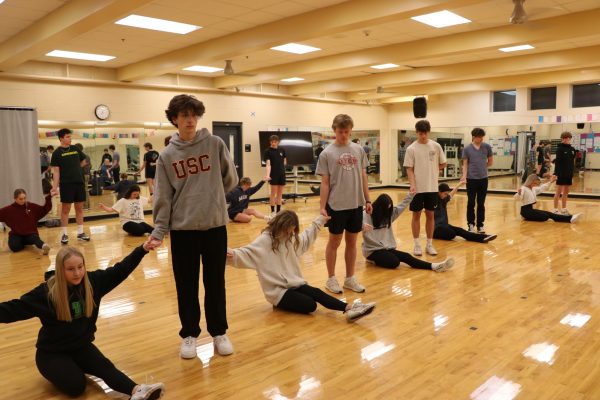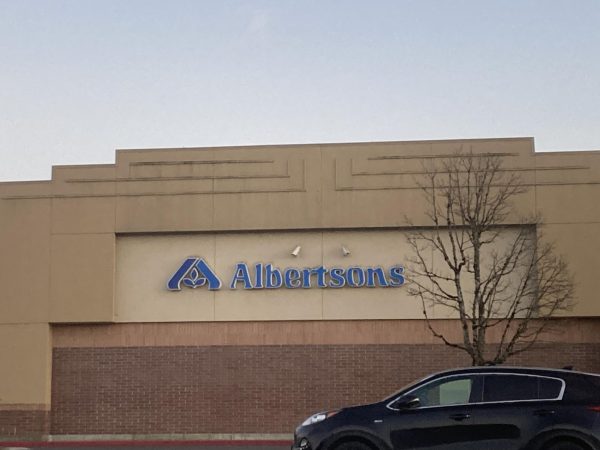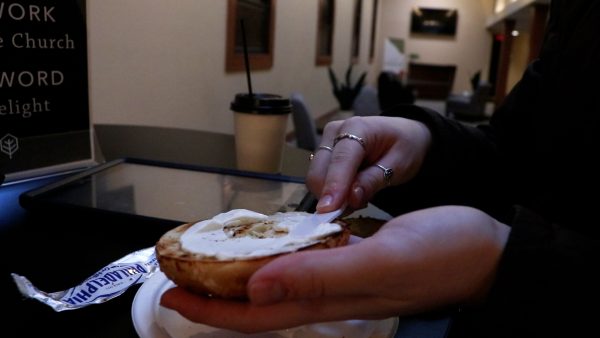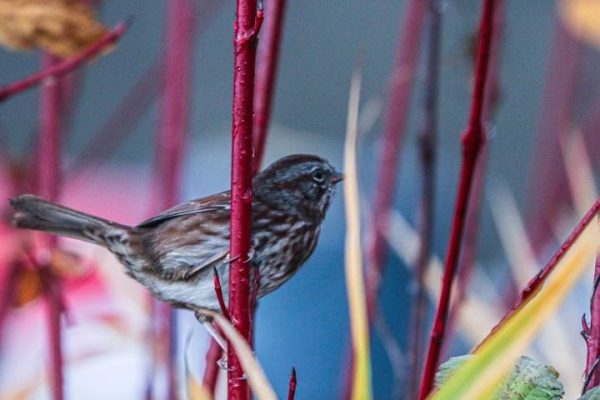Finding a purpose
Honors Humanities students show off projects at final exhibit
Students finish off their final project for honors humanity by answering the question- “what is your purpose?” through various mediums of presentation. Through interacting with others to reflect their personal traits or get external input, or simply reflecting on their personal beliefs, students illustrated a diverse set of beliefs and projects. Pictured above: Beloved Ulinwa, senior, watches a project by one of the students that chose a multimedia presentation.
To finish off their final project of the school year, Honors Humanities students were able to exhibit their projects based on an agreed upon question that all students and adults alike may wonder- “what is your purpose?” Whether it was video, paintings or even writing, students were able to get a larger world view of the purpose of both themselves and those around them.
“My answer to ‘what is your purpose’ was to make a lasting impact on the world,” Mackenzie Krish, senior, said. “And I made a flip book of my different idols in the world and the different characteristics that made them have an impact. So you can kind of like pick and choose characteristics and make your own idol.”
Krish, who spent almost three weeks working on the project, knew that the Honors Humanities class would be interesting based on the course work beforehand, even if it wasn’t exactly what she ended up taking.
“It just sounded fascinating based on the syllabus and stuff and the way it was described on paper it sounded really fun,” Kirsh said. “And I’m not sure if it really lead up to that in real life, but it looked really cool and I wanted to take it.”
While some students decided to work on their project based on their own interests, others reached out to family and friends around them to create their project.
“I did mine [based on] my life purpose, [which] I feel is serving others and bringing joy to others,” Devon Berny, senior, said. “And so I did my project by picking a different friend or family member and each week leading up to this, I would just do something small, like getting them a chair or walking to class with them or something like that.”
While Berny knew what her life purpose was, she knew transitioning the idea to a exhibit piece would be harder. She tried to illustrate her work through seeing how well she facilitated her purpose and how it affected others.
“For the exhibit I kind of did a reflection on that,” Berny said. “And then I wrote it in a book and kind of just put it together.”
While there was a diverse set of answers, some students seemed to have similar answers based on what they believe to be their role in the world now, which might change later on.
“I thought that my purpose in life was to be a friend to people and to just be there for my friends if they need someone,” Christian Martinez, senior, said. “Or even if someone needs a friend that I don’t know. I’m just here to be someone to support others,”
Martinez, who decided to exhibit his project through a powerpoint presentation, was able to support his answer through the observations of others after reflecting on his history of helping others.
“I talked to three of my good friends that I’ve known for a very long time and I asked them if they could remember a good time or a sad time that I was there for them. And they wrote that out and I put that into a powerpoint to show what a good friend looks like,” Martinez said. “I mostly had to wait on my friends because it took them time to really think about it and the top story that they wanted to write about.”
Martinez, who initially decided to take the class because he felt it had an easy workload and an easy going curriculum, soon enjoyed the challenging activities and discussions in the class.
“To be honest I thought the course description was easy. I heard that Mr. Julian was a really good teacher and he’s one of my favorite teachers that I’ve ever had,” Martinez said. “But I really have enjoyed being open about conversations. There’s no restrictions and you can talk to the class about whatever you want and it’s really just a comfortable environment to be in.”
Berny agrees with the statement, knowing the course would have in depth discussions based on a friend’s recommendation.
“I had a friend who took it last year and she said the class discussions were really different,” Berny said “I heard that it was just really unique and she told me about it and I was really interested in taking it.”
Since many people decided to answer the question based off of everyday activities or simply how they interact with others, a handful of students decided to act on their academic interests and create a project from such ideas.
“Our project question was to answer ‘what makes life worthwhile’ and to me its just leaving the world a better place,” Zach Davis, senior, said. “To do that I kind of just took the first thing that popped into my mind, which was accessing the environmental aspect of my life and trying to just start there. I’m just trying to do something good for the environment and this is just the starting point.”
Davis, who based his project off of the work he began in AP Environmental Science, knew he wanted to show how he wanted to impact the world on a larger scale through the local level.
“My project is about going to the school board of Meridian Creek, which is the middle school going in by Wilsonville, and I’m trying to get them to use all native plants for their park instead of all the normal ones that they use that tend to be invasive and take over the surrounding area,” Davis said. “And so I teamed with Bosky Dell which is a native plant nursery located in old West Linn and we’re working together to find a list of plants that would benefit the environment and the surrounding area. And when it comes time to do it, they have offered to donate most of the plants.”
While the entire project has been many weeks in the making, the actual project exhibited, which was based on a paper model of the wooded area, took much less time, but was still challenging.
“It took a lot longer than it looks because I’m not really artistic,” Davis said. “I would sit down for about two hours for about eight days total so in the long run it probably didn’t take as much time as other people put into it, but the art aspect was definitely the hardest part.”
Davis, who is new to humanities and philosophy based classes, believed he learned a lot about the new subject before leaving the class and the school.
“One of my friends said it was a really cool philosophy class and I didn’t have much experience in philosophy and so I just wanted to get educated in everything I could before college,” Davis said. “My favorite part has been how accepting Dan [Jullian] is. Everything that we’ve talked about, he’s responded to very seriously, and educated us as best as possible and I just thought that was really cool.”
Your donation will support the student journalists of West Linn High School. Your contribution will allow us to continue to produce quality content by purchasing equipment, software, and continuing to host our website on School Newspapers Online (SNO).
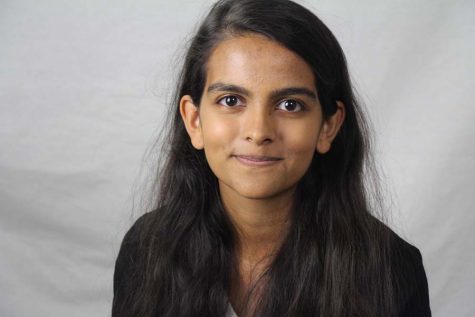
A petri dish and many different types of bacteria are not things that the average high school student wants to spend their time around. But for Nalini...
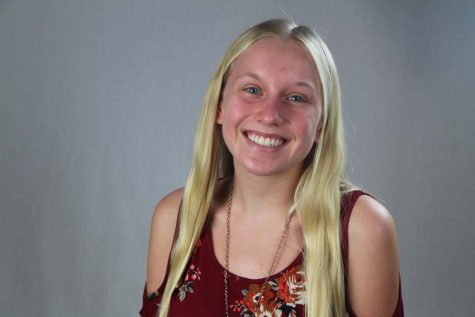
The llamas charge toward her, she jumps out of the way to avoid the stampede- but it’s just another Saturday for Terner Eleanor, sophomore. Terner has...


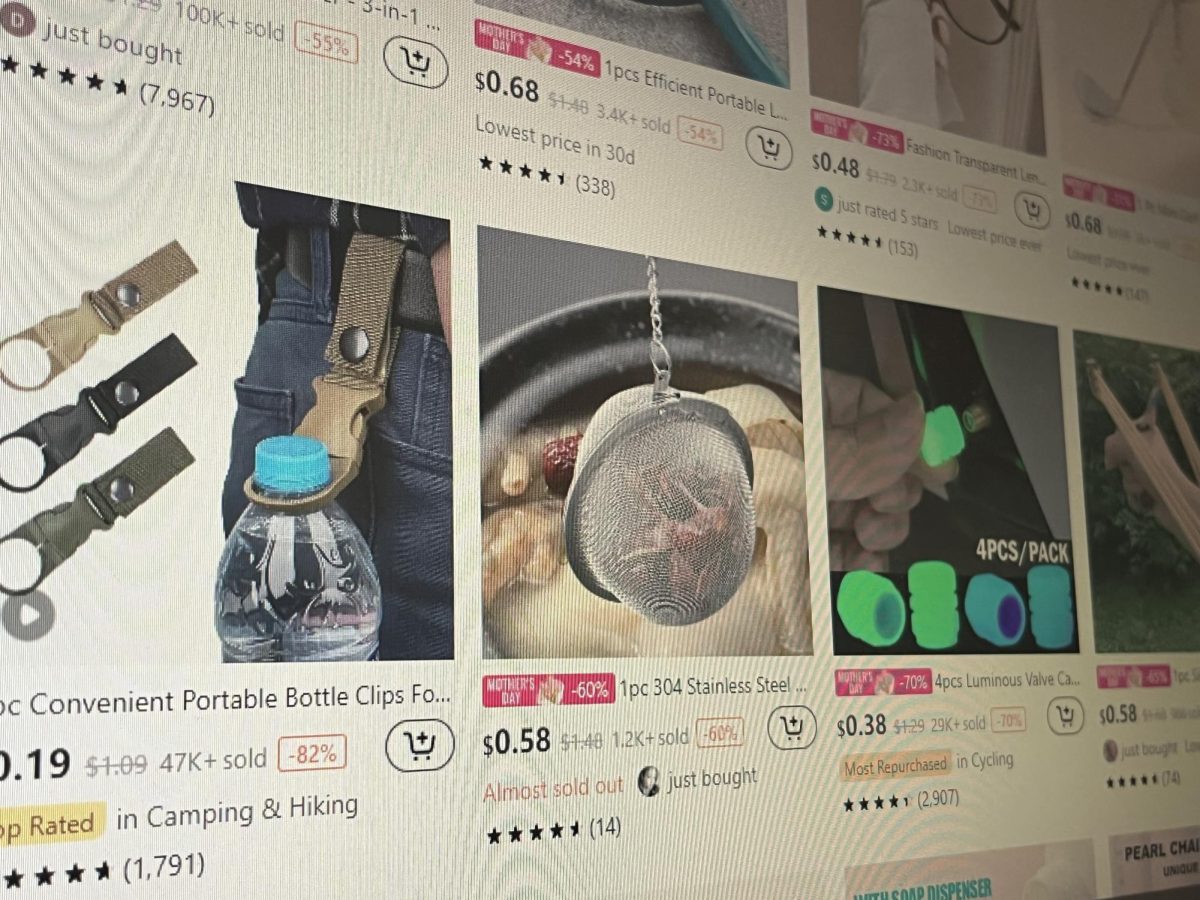























![Game, set, and match. Corbin Atchley, sophomore, high fives Sanam Sidhu, freshman, after a rally with other club members. “I just joined [the club],” Sidhu said. “[I heard about it] on Instagram, they always post about it, I’ve been wanting to come. My parents used to play [net sports] too and they taught us, and then I learned from my brother.”](https://wlhsnow.com/wp-content/uploads/2024/03/MG_7715-2-1200x800.jpg)





![The teams prepare to start another play with just a few minutes left in the first half. The Lions were in the lead at halftime with a score of 27-0. At half time, the team went back to the locker rooms. “[We ate] orange slices,” Malos said. “[Then] our team came out and got the win.”](https://wlhsnow.com/wp-content/uploads/2023/10/IMG_2385-1200x800.jpg)





![At the bottom of the third inning, the Lions are still scoreless. Rowe stands at home plate, preparing to bat, while Vandenbrink stands off to the side as the next batter up. Despite having the bases loaded, the team was unable to score any runs. “It’s just the beginning of the season. We’re just going to be playing out best by June, [and] that’s where champions are,” Rowe said.](https://wlhsnow.com/wp-content/uploads/2024/03/IMG_3077-1200x900.jpg)







